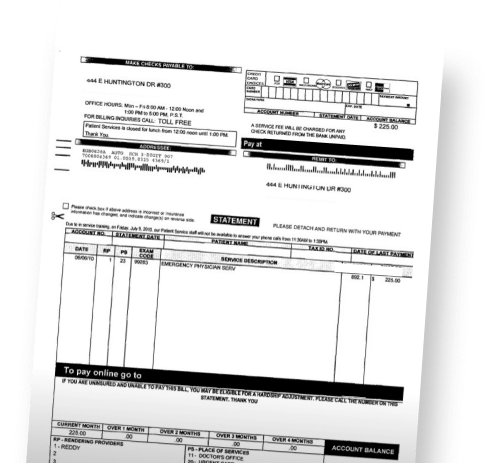Senior Health Insurance
Life is unexpected. While we may have good health, exercise regularly and eat a well-balanced diet, we become more susceptible to certain ailments as we age. However, if you have seniors health insurance, it can help alleviate some of the financial burden of health care if you become injured or fall ill.
To get the most out of health insurance, it’s important to choose the cover that best meets your needs, now and into the future. But it can be a considerable expense for seniors over 60, and choosing the right cover can be a confusing and time-consuming process.
So whether you’re at the height of your career or enjoying your retirement, still sharing your home or are an empty nester, and either looking for a health insurance policy for the first time or looking to change or upgrade your cover, No Worries can help!
Our experienced team have been helping Australians compare health insurance for over ten years. We will help you compare 8 of the leading health insurance brands in Australia, and your cover can include hospital cover and/or extras cover or a combination of both — it’s entirely up to you. Plus, waiting periods are waived if you are with an existing health fund, as long as you are switching to an equivalent or lower level of cover.
We can provide you with a competitive, obligation-free quote in minutes, so that you can make an informed decision. Our Melbourne based call centre team can help with any queries you have and when you decide to switch with us, we’ll also complete all the paperwork for you, so you’ll be able to start claiming in no time. Call our friendly team on 1800 318 223 and start saving now!
Find health cover that’s just right for you with No Worries!

What is seniors health insurance?
Seniors’ health insurance policies are specifically created for older Australians and typically provide cover for age-related conditions and exclude cover for things that are unlikely to be required, for example, pregnancy. They are suitable for both singles and couples and vary depending on individuals’ current and future needs. However, the exact definition of “senior” may vary between different insurance providers. In some cases, these policies may be available to people in their 50s, while in others, the minimum eligibility age is 65.
There is no maximum age limit for obtaining seniors’ health insurance. In fact, in accordance with the Private Health Insurance Act, Australia’s private health insurance (PHI) is based on a system of “community rating”, which means that everyone pays the same premium for their health insurance. This means that health funds are prevented from discriminating against members based on a number of factors, including age.
Community Rating was developed by the Australian Government to make sure that people with a higher level of claims are not disadvantaged. It means that everyone is entitled to buy the same health insurance products at the same price and is guaranteed the right to renew their policy.
For example, a single, healthy 20-year-old and a single, unwell 60-year-old could actually pay the same premium for the same health insurance cover. However, the cost of premiums for similar cover may vary between health insurers. Essentially, the rating is designed to keep the system fair for all Australians and is instrumental in helping Australia achieve its internationally renowned healthcare system.
Why is private health insurance for seniors so important?
In Australia, we have a public healthcare system where seniors can often get discounted prescription medications on the Pharmaceutical Benefits Scheme (PBS) list, bulk-billed appointments to see a GP for check ups and other concessions. Those eligible for a Pensioner Concession Card or a Commonwealth Seniors Health Card can also receive additional benefits such as an increased Medicare Safety Net, that reduces Medicare levy surcharges and provides assistance with health services.
However, there are many reasons why seniors should consider taking out private health insurance. As we age, our health needs change, and we are also typically more susceptible to an increased range of health risks, such as illness or injury. Some of these may require treatment in and outside of hospital. Some of these treatments may also not be covered by Medicare, so this is where seniors health insurance may help you gain access to tailored, high-quality care more quickly, depending on your personal needs.
If you do have private health insurance, you may be eligible for an Australian government rebate that will go towards the cost of your private health insurance premiums. The rebate you will receive depends on your age, your relationship status and your income (including money you receive from the Age Pension). Generally, the older you are, and the less you earn, the higher the rebate you could receive.
When it comes to surgery, if you don’t have private health insurance, there may be lengthy waiting lists — from months or even years — in the public health system, whereas a patient may be seen much earlier at a private hospital. If you have the right level of private hospital cover, you will have the peace of mind that you may only need to wait days or weeks (provided you have served your waiting periods) to undergo surgery, get the problem fixed and continue to enjoy life’s adventures. In short, private health insurance can help you get back to your day-to-day activities much faster.
What is included in a seniors health insurance policy?
Seniors’ health insurance policies for Australians, like other health insurance policies, can include hospital cover, extras cover or both, depending on your choice of policy and level of cover. It is generally worthwhile looking for a health insurance policy provider that covers the common health conditions that affect seniors. Typically, cover for these types of treatments is found within top-tier hospital or in a fund’s extras policy.
The benefits you can access through your seniors’ health insurance policy will ultimately depend on the type and level of cover you choose and what health fund you sign up for. You may need to pay for some out-of-pocket expenses when claiming for any treatments through your health insurance, as insurance providers may only cover up to a set monetary limit for any particular procedure. It is a good idea to review your health insurance policy regularly to make sure the cover you’re paying for aligns with your current and future health cover needs.
Hospital cover
Private hospital health insurance covers hospital treatments in a private hospital when you choose to be admitted as a private patient. You can choose your doctor, stay in a private hospital room and enjoy greater flexibility in scheduling your medical procedures.
Typically four hospital cover tiers are available — Gold, Silver, Bronze and Basic. Health insurance providers may also offer policies under these tiers but with additional coverage, which they call “plus”, such as Silver Plus. This means these policies provide all the coverage of a Silver tier, with additional cover, but not as much cover as a Gold tier, which is the highest level of hospital cover available. Of course, the cover and benefits you receive depends on what tier of health cover you choose, however, the following are those seniors often prefer to include in their health insurance policy cover:
- Heart and vascular system – including surgery, angiograms and stents
- Joint replacement – including surgery and joint replacements
- Knee replacements and hip replacements
- Major eye surgery – including cataract surgery
- Lung and chest
- Back, neck and spine
- Dental surgery
- Implantation of hearing devices
- Pain management devices
- In-hospital rehabilitation and psychiatry
- Cancer treatments
- Palliative care.
Extras cover
This side of health care insurance subsidises out-of-hospital care that Medicare does not pay a benefit towards. In terms of seniors’ health insurance, seniors may look for an extras cover that includes:
- Optical – which can cover prescribed glasses and contact lenses
- Physiotherapy – which is designed to restore proper body function and reduce permanent injury or disease through manual therapies, exercise programs and electrotherapy techniques
- Remedial massage – to treat injuries and encourage recovery
- Chiropractic care – which treats health issues related to nerves, muscles and the skeletal system
- Podiatry and orthotics
- Psychology consultations
- Physiotherapy
- Occupational therapy
- Speech therapy – including the treatment of stroke victims
- Hearing aids – including the design, repair, and replacement of aids
- Dental – including dentures and partial plates
- Health aids and appliances – like crutches, glucose monitors and blood pressure monitors.
How much does seniors health insurance cost?
As mentioned above, a senior pays the same as any younger individual for the same level of private health insurance, regardless of their age or condition. Health funds also can’t deny policies to certain people based on their health or the likelihood of them claiming on certain services.
However, for all Australians, the cost of health insurance depends on a variety of factors, including whether you choose hospital, hospital and extras, or an extras-only policy. The cost will be determined by the level of cover you choose as well as your relationship status, if you have children and where you live.
Here is a breakdown of the average cost of annual health insurance premiums for over 60s by location and relationship status in early 2022, according to financial comparison site, Canstar.
Hospital cover
Cover includes minimum hospital requirements for heart and vascular and joint replacements.
- 60–64 years
Singles Couples NSW $2,162 $4,310 VIC $2,318 $4,613 QLD $2,269 $4,521 SA $2,053 $4,095 WA $1,882 $3,749 TAS $2,140 $4,259 NT $1,537 $3,062 - 65–69 years
Singles Couples NSW $2,044 $4,076 VIC $2,192 $4,362 QLD $2,145 $4,275 SA $1,941 $3,872 WA $1,779 $3,545 TAS $2,024 $4,027 NT $1,453 $2,895 - 70 years and older
Singles Couples NSW $1,926 $3,841 VIC $2,066 $4,111 QLD $2,022 $4,029 SA $1,830 $3,649 WA $1,677 $3,341 TAS $1,907 $3,796 NT $1,370 $2,729
Hospital and extras cover
Cover includes minimum hospital requirements for heart and vascular, as well as joint replacements.
- 60–64 years
Singles Couples NSW $2,800 $5,563 VIC $2,876 $5,727 QLD $2,878 $5,725 SA $2,772 $5,527 WA $2,649 $5,271 TAS $2,683 $5,354 NT $2,366 $4,699 - 65–69 years
Singles Couples NSW $2,647 $5,261 VIC $2,719 $5,416 QLD $2,721 $5,414 SA $2,622 $5,226 WA $2,504 $4,984 TAS $2,537 $5,063 NT $2,237 $4,443 - 70 years and older
Singles Couples NSW $2,495 $4,958 VIC $2,563 $5,104 QLD $2,565 $5,102 SA $2,471 $4,925 WA $2,360 $4,697 TAS $2,391 $4,771 NT $2,108 $4,188
Are there any other additional costs associated with health insurance products?
Lifetime Health Cover (LHC)
The Australian government introduced the LHC in July 2000. It is a financial loading that applies to anyone who hasn’t taken out and continuously held private hospital cover before the 1st of July following their 31st birthday. It is charged on top of your hospital premium at 2% for each year you haven’t held hospital cover after 1 July following your 31st birthday or 1 July, 2000, or if you have not held continuous hospital cover for the past ten years. This rate is capped at a maximum of 70% and is removed once you have held and paid the LHC loading for ten years.
Medicare Levy Surcharge (MLS)
If you don’t have hospital cover and you earn over $90,000 a year (or $180,000 as a couple or family), a MLS of up to 1.5% may apply as an extra tax on your income. This is not to be confused with the Medicare Levy, which applies to all taxpayers, as the MLS is charged on top of the levy.
Medicare Levy
Medicare covers 75% of the Medicare Benefits Schedule (MBS) fee, which is a listing of prices for various treatments the Australian Government deems adequate for the service. Private hospital insurance policies cover the remaining 25% if you are treated as a private patient in a public or private hospital.
Certain medical or hospital charges may exceed what you can claim back from Medicare and your health insurance combined, as health practitioners can charge more than the MBS fee — this is known as the “gap”. To help reduce these out-of-pocket expenses, some health funds offer “gap cover” by making arrangements and agreements with hospitals and particular doctors.
Some services Medicare covers include:
- visits to your GP
- eye exams with your optometrist (not the glasses)
- consultations with a hearing specialist (not the hearing aids)
- access to partially government-funded aged care to help lower costs towards many services for eligible seniors.
Some services Medicare doesn’t cover include:
- hospital accommodation costs for private patients
- cosmetic surgery
- ambulance services
- most dental examinations
- acupuncture
- home nursing
- glasses and contact lenses
- hearing aids
- the majority of chiropractic, physiotherapy, podiatry, and psychology services.
What if I have pre-existing conditions?
That’s completely fine. You can still include hospital and extras benefits in your cover that relate to your conditions at no extra premium. The only limitation is the waiting period, and once you have served the relevant waiting period, you will receive the full benefit associated with the condition — as long as it is covered by the policy.
A pre-existing health condition is any ailment, illness or condition that you had signs or symptoms of in the six months before you took out a policy or upgraded to a higher level of cover. This condition does not need to have been diagnosed by your doctor. It is up to the health fund’s appointed doctor, not your own doctor, to decide whether your condition was pre-existing when purchasing or upgrading your policy. However, the health fund’s appointed doctor must take into account any information given to them by your own doctor. You may need to get a medical certificate from your doctor and send it to your health fund to support some claims.
Under Australian legislation, a health insurance provider may put up to a 12-month waiting period on benefits for hospital treatment for pre-existing conditions. Exceptions are psychiatric care, rehabilitation or palliative care, which usually have a two-month wait.







